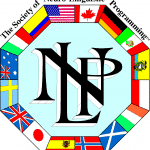

In NLP Complex Equivalence is a conclusion. It bases itself on a static belief that gives some conditions. The outcome will always be the same. NLP suggests that this is a close view of potential possibilities. It provides opportunities for learning, growth and change. Often, complex equivalences are used in the process to chunk up (or generalizing) inappropriately. To make summary judgments that do not apply as widely as a person is implying.
Consequently, keywords to listen for are “A equals B”, “A is the same thing as B”, “A means B”. Remember to make clearly not to confuse them with “A leads to B” or “When A, B” or “If A then B”, which are all three cause and effect statements.
Take the following sentence as an example: “Well, you coming home late from work is the same thing as wanting to spend less time at home.”. Hence to challenge and question that statement, you can ask: “When did it start being the same thing?”. Herein presupposing that it was not always.
“You look relaxed, so you have slept well.” Here the conclusion of being relaxed is bound to sleeping well. Is this really true?
To reveal the Complex Equivalence you can start to ask questions like:
Mind Tools provides NLP Practitioner and NLP Master Practitioner Trainings and Certifications. We educate you according to the renowned, latest and highest standards set by the Society of NLP. We will train you thoroughly in all the corners of Neuro-Linguistic Programming and some extras we learned from Richard Bandler directly.

Our NLP Practitioner Training starts in:
On Checkout use the code NLP10PCTOFF and gain an extra 10% off our already discounted price.